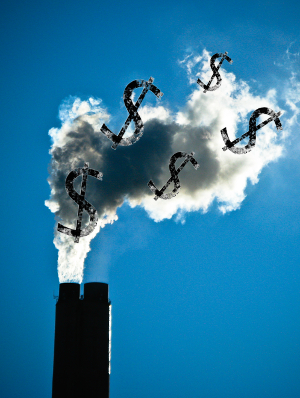Budget baulks at green goals
 Authorities say the Federal Government has missed the opportunity to show leadership on nature and climate action in this week’s budget.
Authorities say the Federal Government has missed the opportunity to show leadership on nature and climate action in this week’s budget.
According to the update figures, federal spending on the environment is forecast to fall by 17 per cent by 2019-20.
The budget papers include no changes to big fossil fuel subsidies, including no reform of the Fuel Tax Credit subsidy, which will cost Australians almost $26.5 billion over the next four years.
There is also no change to aviation fuel excise concessions which subsidise the fuel of the aviation sector, which will cost taxpayers $5.4 billion over the next four years.
It means motorists will continue to pay almost 40 cents in tax on every litre of fuel they buy, while mining giants like BHP Billiton, Rio Tinto and Glencore Xstrata, pay no tax at all on the fuel they use.
The Government has announced $171 million for the Great Barrier Reef, but a majority of this spending will not occur until 2019.
There are two streams of funding – $101 million reallocated from existing environment funds and $70 million in new funding for the Reef Trust.
$40 million of that new funding for the Reef Trust will not flow until 2019-20, and the bulk of the Government’s announced spending for the reef ($95.4 million) occurs after the forward estimates. This means it will not come into play until two elections from now
“While the Great Barrier Reef suffers its worst bleaching event ever, the Government has failed to commit substantial funds in the coming financial year,” says Australian Conservation Foundation CEO Kelly O’Shanassy.
While $2 billion has been put on the table for water infrastructure projects, the Commonwealth Environmental Water Holder faces an uncertain future, with funding for its operation drastically reduced by 91 per cent from 2017-18 onwards (from $11.7 million in 2015-16 to $1.4 million in 2017-18).
Similarly the Murray-Darling Basin Authority faces uncertainty, with federal funding halved from 2017 (from $84.7 million in 2016-17 to $37.3 million in 2017-18).
On the renewable energy side, there has been no commitment to supporting an energy transition away from coal.
In fact, the Government has not provided any vision in this budget and no major commitment to renewables.
“This budget could have been used to articulate a plan for a clean energy transformation for Australia – one that will see our country get off coal, get into renewables, help workers with the transition and make our energy systems much more efficient,” Ms O’Shanassy said.
The ACF and other environmental groups welcomed $15 million committed over three years for development and early implementation of a National Carp Control Plan, but they are dismayed that there is no new money for protected areas or threatened species recovery.
The budget papers provided no clear information on Indigenous Ranger programs.
“Despite recently appointing Australia’s first Threatened Species Commissioner, the government has not dedicated new money to threatened species recovery. The government continues to rely on broad and imprecise programs, such as the Green Army, to try to deliver these outcomes,” Ms O’Shanassy said.
“Under the Turnbull government, spending for the environment is forecast to fall by 17 per cent by 2019-20 (Budget Statement 1-9 – Table 3). This is hugely concerning at a time when Australia’s reefs, rivers, forests and lands face unprecedented threats. We desperately need to spend more on our reefs, rivers, forests and lands, not less.”








 Print
Print